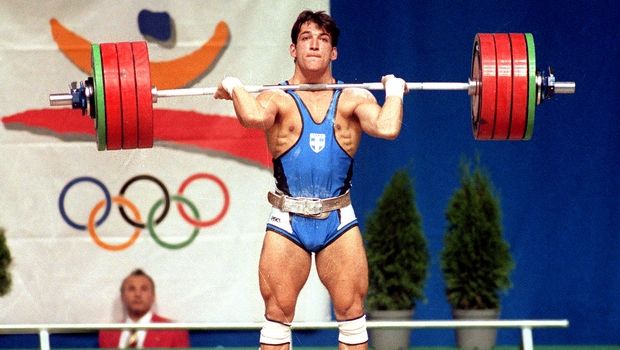Until before the petty catastrophe of 1922, Smyrna numbered 370,000, of whom 165,000 were Greeks, 80,000 Ottoman Turks, 55,000 Jews, 40,000 Armenians, 6,000 Lebanese, and 30,000 other foreigners. According to George Horton, Smyrna at that time exceeded 500,000 inhabitants. The language was Greek, so that it was called by the Turks as, from the Europeans to the Paris of Levante.
This presence was marked by the various works assigned to them, mainly by wealthy Greek merchants who had contacts with Europe. So, the customs office of Smyrna was constructed by Gustav Eifel, architect of the same name in Paris, while the Clock at the Governor's Square (Conak) was the gift of William II. The European architecture combined with the local architecture gave the term "Smyrnaikos House" as something special in its kind.
The 1923 Greek-Turkish Exchange of Persons (Turkish: Mübadele) was based on the religious identity, including the Greek Orthodox Christian citizens of Turkey and the Muslim citizens of Greece. It was mandatory to exchange large-scale populations, or else, agreed mutual displacement. The only one in world history that was dictated by a transnational convention. Nansen designed and oversaw the exchange, taking into account the interests of Greece, Turkey and other western European countries, as a talented diplomat with experience in the movement of Russian Armenians and Assyrian refugees after the First World War.
The agreement promised that the property of migrants would be safeguarded and that they could freely transport any movable property with them.
All the property that would be left in Greece would belong to the Greek state, and all the property that would remain in Turkey would belong to the Turkish state. Due to the different nature of the populations, the property left behind by the Greek economic elites of Anatolia was greater than that was left by Muslim farmers in Greece.
The Greek-Turkish exchange was a result of the Turkish Independence War. After Mustafa Kemal Ataturk's entry to Smyrna followed by the dissolution of the Ottoman Empire on 1 November 1922, an official treaty of peace with Greece was signed, after months of negotiations in Lausanne on July 24, 1923. Two months after the treaty, the Allies delivered Constantinople to the Nationalists, marking the definitive departure of the occupying allied forces from Anatolia.
The genocide of the Greeks of Pontus refers to massacres and displacements against Greek populations in the Pontus region that were carried out by the Young Turks during the period 1914-1923. It is estimated that it cost the lives of about 326,000-382,000 Greeks. Survivors fled to Upper Pontus (in the USSR) and after the Asia Minor Disaster in 1922, in Greece.
On February 24, 1994 the Greek Parliament unanimously voted the proclamation of May 19th as "Memorial Day for the Genocide of Greeks in the Asia Minor". The genocide of the Pontians is officially recognized by four states, Greece by a law of 1994 (N 2193/1994), Sweden with a vote in the Swedish parliament on 11 March 2010, Armenia in March 2015, together with the genocide of the Assyrians and the Netherlands, together with the genocide of the Armenians and Assyrians on 9 April 2015.
Turkey does not recognize that there has been genocide, and it attributes death to war, to plague and disease, and does not admit to genocide. However. Turkish scientists have publicly described the events as genocide.
Politics in Greece and Europe of the past. Flashback:29 years ago
Europe
From the first months of 1989, Europe faced the most sweeping political changes that had to happened since 1848. A huge wave of labor and social struggles swept the Eastern Europe and led to the collapse of the regimes of the state capitalism.
Specifically:
Romania
Nikolae Ceausescu, the last communist leader of Romania at his last speach
At 1989’s Christmas, the Romanian dictator Ceausescu executed after a concussive folksy uprising. Thus closed a whole historical period of Stalin’s regimes in Eastern Europe.
Bucuresti 1989 the revolution
Poland
Lech Walesa,A charismatic leader, he co-founded Solidarity
The
beginning of end started in February of 1989, when the Polish regime
invited the labor union ‘’Solidarity’’ to take part in conversations for
its participation in government. This, led the dictatorial monolith to
its breaking, not only Polish’s but of all the states that had
capitalism regime. On June 4 of that year the status of Poland forced
after years of economic and political crisis to call an election. The
union ‘’Solidarity’’ wins on the elections. Finaly, on August 24,
Tadeusz Mazowiecki becomes the first non-Communist prime minister of the
eastern bloc.
Germany
On November 9, the Berlin Wall knocks down from the happy crowd.
In
August of 89’ thousands of Eastern Germans go to embassies of West
Germany in Eastern Berlin, Czechoslovakia and Hungary asking for asylum.
While visiting the Eastern Berlin the leader of Soviet Union Mikhail
Gorbachev calls on the regime for reformations. The first demonstrations
against the regime start at Eastern Berlin. On November 7 to 8, the
East German government resigns while thousands of Eastern Germans
demonstrators arriving at the borders and require cross them. On
November 9, the Berlin Wall knocks down from the happy crowd.
Bulgaria
Todor Zhivkov
In Bulgaria on November 10th, 89 ' regime forces to resign Bulgarian dictator Todor Zhivkov.
















